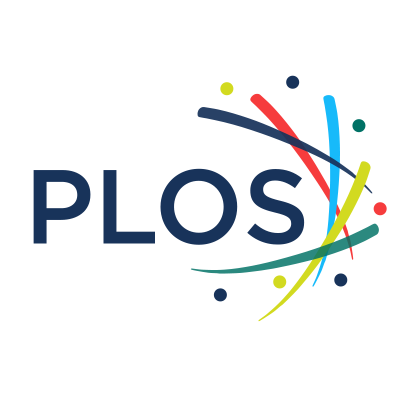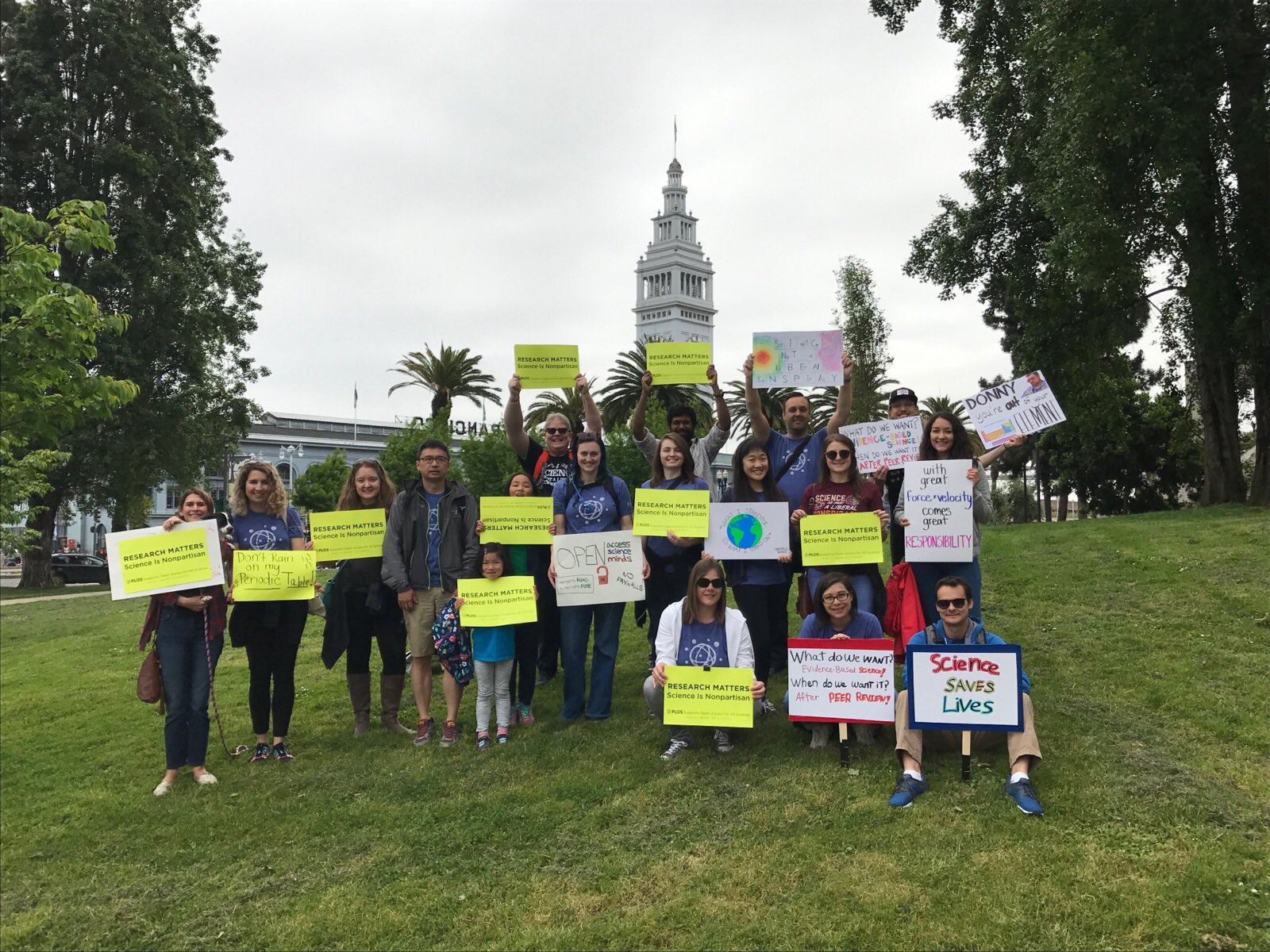We are excited to announce two new journals coming soon to the PLOS portfolio: PLOS Complex Systems and PLOS Mental Health! These journals are rooted in the full values of #OpenScience to support rigor, reproducibility, and rapid dissemination of research in their fields. 🧵 1/4
PLOS
@PLOS
#Mastodon - @PLOS@mstdn.science
Breaking boundaries.
Empowering researchers.
Opening Science.
PLOS’s posts
We support : "The Unofficial "Resistance" team of U.S. National Park Service." #USofScience #StandUpforScience #scicomm
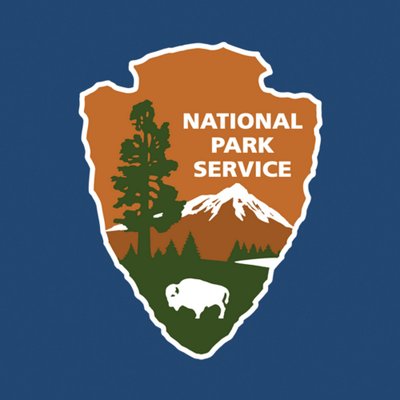
Thank you, #BadlandsNationalPark for sharing scientific facts on #climatechange #USofScience grist.org/briefly/our-he
What activities do you participate that help you feel most connected with others in your field?
-Subject/field-specific conferences
-Fully virtual conferences or meetups
-Live audio discussions (Clubhouse, Twitter Spaces)
-Social media groups or online forums (like subreddits)
- Subject conferences25.4%
- Virtual conferences32.2%
- Live audio discussions16.9%
- Social media groups25.5%
705 votesFinal results
We cannot ignore the latest injustice - #GeorgeFloyd. Simply put, #BlackLivesMatter. We will be prioritizing our social media space for the #BlackAndSTEM voices to be heard. We’re here and we’re listening.
What is the top reason that you choose #OpenScience?
➡️ My work is accessible to anyone
➡️ My work will reach more people
➡️ I can increase trust by sharing methods, data
➡️ My work will reach my peers faster
If your top reason isn't listed, let us know in the replies!
- Accessibility52.8%
- Reach16.5%
- Trust18.5%
- Speed12.2%
1,111 votesFinal results
Remember the good old days of last wk, when govt employee stating a scientific fact was unremarkable, nay expected? on.nrdc.org/2jgp2bN

How "the Trump Administration’s War on Science" will undermine American innovation & national security nyti.ms/2nEaf0y
Just departed Nat Park Service director speaks out against Trump admin gag orders #StandUpforScience wpo.st/8wEY2
Replying to
#Preprints have come to !
Starting today, authors submitting to (most) PLOS journals have the choice of also posting as . See the tweets above for just some of the reasons why we say "opt in". blogs.plos.org/plos/2018/05/p #PowerToThePreprint
Today, we’re pushing the boundaries of Open and launching published peer review history across all of our journals. We're excited to begin offering authors and reviewers more choices about how they publish!
We are extremely excited to announce the imminent launch of 5 new journals, our first new launches in 14 years! These new journals are unified in addressing global health & environmental challenges through forums rooted in the full values of #OpenScience. plos.io/3dWwfO0

GIF
Exciting news rings in the weekend: The European Research Council announced that it will accept #preprints as evidence of an academic's work when applying for grants, giving even more #powertothepreprint than before: timeshighereducation.com/news/new-boost
What is your favorite way to find out about new research in your field? (If your favorite option isn't listed, let us know in the replies!)
#OpenScience #ScienceTwitter #SciComm
- Social Media59.9%
- Podcasts15.2%
- Collections10.7%
- Email14.2%
1,551 votesFinal results
#Preprint isn't a synonym for "first draft" or "low quality". In fact, we think scientists who post to a preprint server are taking #peerreview a step further by inviting MORE feedback from the community. journals.plos.org/ploscompbiol/a #PowerToThePreprint
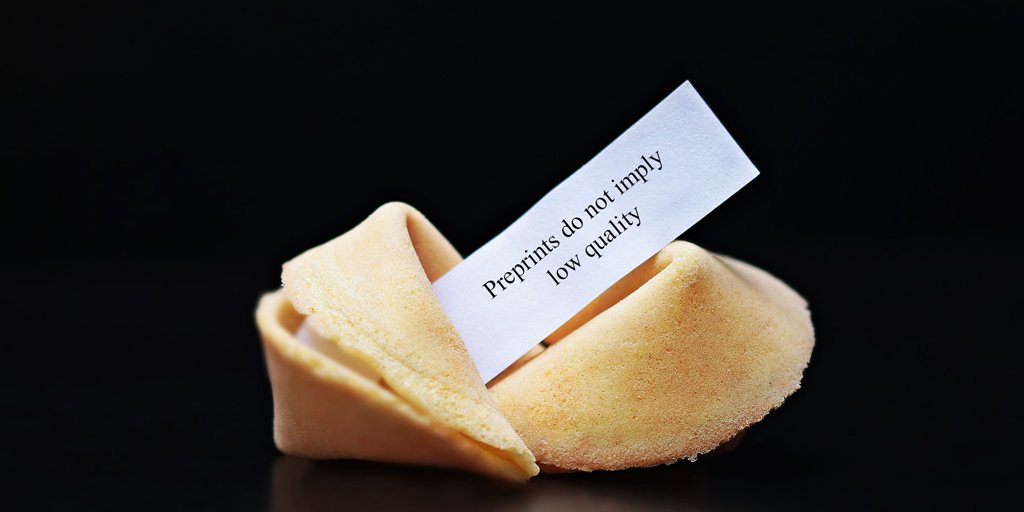
We are excited to take part in a new initiative that could significantly speed up peer review. and have teamed up to launch Review Commons, a platform for rapid, objective, journal-independent peer reviews. has more on the Official PLOS blog.
A study shows that having more women in leadership roles in scientific societies may help ease gender disparities in #STEM. Read a #ResearchNews summary to learn the key findings and implications of this research researchnews.plos.org/2018/06/01/clo #WomenInSTEM

Yesterday PLOS joined over 100 publications in an open letter committing to offer transparent peer review. Read more about our first steps toward transparency, credit, and peer review #HHMI #PublishPeerReview
The Need for Publicly Funded Science: Research not just something scientists do; it requires large infrastructure. theness.com/neurologicablo
How has communication in science changed in your field in the past couple of years?
#ScienceTwitter #OpenScience #SciComm
- Wider use of preprints23.9%
- Global research sharing31%
- Increased collaboration23.9%
- More global collaboration21.2%
703 votesFinal results
What tool is most important to you in ensuring you get credit for your work? If you use a different tool, let us know in the replies! #FutureOfOpenScience #OpenScience
- ORCiD40.2%
- CRediT5%
- Google Scholar46.6%
- Something else8.3%
1,570 votesFinal results
What’s the most important next step toward ensuring equity and inclusion in #OpenScience? If you have other ideas, please share them in the replies.
- More OA journals22.6%
- Increased Open practices29.3%
- APC alternatives26%
- Diverse editorial boards22.1%
819 votesFinal results
What increases your trust in published research? Do you feel more confident about the results of a study with...
#FutureOfOpenScience
- Public data36.6%
- Published methods25.4%
- Published peer reviews27.8%
- None of these10.2%
1,646 votesFinal results
Op-Ed: Trump's anti-science budget will be a disaster for America's bottom line latimes.com/opinion/op-ed/ #MarchForScience
How have #OpenScience practices helped you connect with your research community? Share more options in the replies! #FutureOfOpenScience
1⃣ My work is more discoverable
2⃣ Faster sharing with peers
3⃣ More collaboration opportunities
4⃣ Connecting on a shared Open mission
- More discoverable35.9%
- Faster sharing24.8%
- More collaboration29.1%
- Shared mission10.1%
306 votesFinal results
regrets the tone, content and spirit of this review; your appeal is in process & we're reviewing the matter.
Scientific impact is more than a statistic. What is the most important impact your work can have? Share more options in the replies!
> Increase public trust in science
> Influence public policy
> Improve public health outcomes
> Serve as a building block for future discoveries
- Increase trust20.8%
- Influence public policy33.2%
- Educational improvements18.8%
- Building block27.2%
813 votesFinal results
More ways to get credit = more reasons to review. Starting today, reviewers at PLOS can track their contributions and get credit for their work through . It’s as simple as register, connect and authorize. plos.io/reviewer-orcid #peerreview

GIF
One Small Step for #Preprints, One Giant Step for #OpenScience | Beginning May 1, authors submitting to PLOS have the option of posting their manuscript as a #PowerToThePreprint
Thank you for your essential service to the scientific community and to the greater world. #USofScience #climatechange #scicomm
Quote
Dec 2016's avg global temp was 3rd highest on record. Global avg atmospheric CO2 concentration was ~405 ppm. climate.nasa.gov/vital-signs/ca
Publishing an academic study is an achievement for researchers to be proud of, and it is important that the name on the paper reflects who the authors are. Read more about our policy change for published transgender authors.
Knowing what doesn’t work is an important step toward discovering what does. We believe that publishing negative, null and replication studies increases efficiencies, reduces needless duplication and deadends, and accelerates scientific advancement. #OpenScience
"In simple terms, unencumbered dissemination of scientific research depends on a fair Internet." #netneutrality blogs.plos.org/plos/2017/07/n
New "How to get your article noticed AND advance the sci conversation" 5 tips for researchers bit.ly/1DlDeZK

Not done yet...an alternative EPA is born & acts to resist censorship of govt scientists #USofScience #standupforscience twitter.com/ungaggedEPA/st
#NetNeutrality matters to science. Still unsure as to why? Check out our post on @PLOSBlogs to learn why scientists (and the public) need an open Internet for global access to knowledge. blogs.plos.org/plos/2017/07/n
PLOS firmly believes research should be judged on its own merits, not the journal it is published in #citescore #metrics
Best is DeNiro says he listened to the scientific comm & realized showing the antivaxx film would be grave mistake mobile.twitter.com/katerbland/sta
. stands up for science & we will be represented at the #MarchForScience in WA DC on 4/22 blogs.plos.org/plos/2017/02/s
Donald Trump’s Science Denial Is Becoming National Policy - TIME #USofScience
Good new for public health! ": Robert De Niro says Tribeca will not screen VAXXED: pic.twitter.com/5vU0ZneViT"
What areas of #OpenScience would you like to learn more about before pursuing? Let us know of other options in the replies!
- Preprints15.6%
- Published peer review27.6%
- Open data37.4%
- Protocols/Methods19.4%
609 votesFinal results

0:21
In an effort to strengthen the integrity and reproducibility of our published articles and are now requiring raw blot and gel image data. Read more on the Official PLOS Blog.
So far this is actual SF Bay Area account; we support scientists & #OpenAccess to taxpayer supported scientific research
Quote
2016 was the hottest year on record for the 3rd year in a row. Check out this @NASA & @NOAA report: nasa.gov/press-release/

GIF
All #OpenAccess journals are not the same. Before choosing a publisher check "How Open Is It?" plos.org/open-access/ho

We are thrilled to share the news that we are formally partnering with , a nonprofit trust committed to improving African researchers’ visibility and impact through training in scholarly communication. #OpenScience #OpenResearch plos.io/3hl2VTf
#OpenScience enables new communities to form around content and research practices.
Tag a fellow researcher in the replies to thank them for being a part of your research community! #FutureOfOpenScience

GIF
Today we're excited to announce a two-year agreement with that will make it easier and more affordable for UC researchers to publish in #PLOS journals. #OpenAccess #OpenScience
🔓 Details: plos.io/UCOA

read image description
ALT
Scientists report in of revolutionary “dipstick” technology enables DNA and RNA purification from living organisms in under 30 seconds. Read an article summary in PLOS #ResearchNews researchnews.plos.org/2017/11/21/dna

Showing somebody directly what 500,000 neurons look like; Q&A w/ #neuroscientist turned artist @PLOSNeuro blogs.plos.org/neuro/2017/05/

Excited to announce that Yale University Library () has signed two agreements that will allow -affiliated authors to publish in any PLOS journal without paying article processing charges. #OpenAccess #OpenScience plos.io/3dEzTfn
Joining our highly experienced team of staff editors, officially came on board earlier this month as Editor-in-Chief and is eager to get started on the newest initiatives.
Hear more about her vision for the journal: plos.io/3ayqP7C

1:24
Have a question about completing a peer review? 🤔 Use our Peer Review Checklist to help you work through writing your review #PeerReviewWeek18 reviewers.plos.org/resources/peer
🥊CRISPR/Cas9 vs #malaria 🥊
We're betting on the new gene editing technology in this match. A new study shows scientists can use #CRISPR to knockout development of plasmodium, the malaria parasite, in the carrier, the anopheles #mosquito researchnews.plos.org/2018/03/12/cut

Scientists, science societies organize to resist govt gag orders #OnScienceBlogs @PLOSBLOGS #USofScience plos.io/2jZdHPv
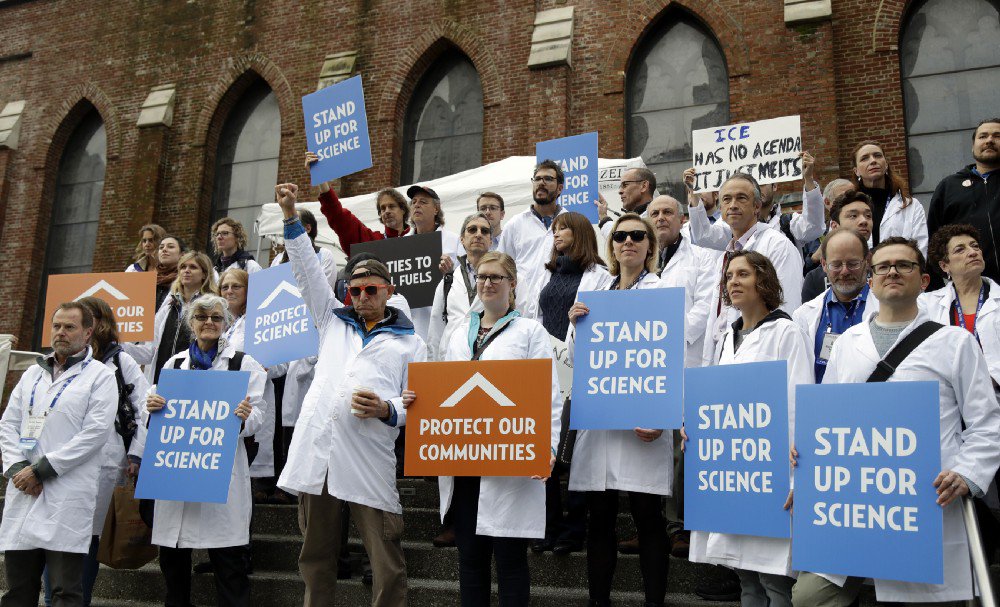
Proud to join a cohort of #scholcomm orgs to support proposed Administration policy that would enhance scientific discovery, American jobs, & our global competitiveness. #OAintheUSA
➡️Read the letter: plos.io/2TzgB0U
🔁Please show support & RT
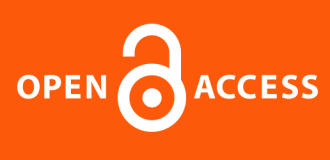
“Nobody will care abt science unless they care about the scientist" Connecting w yr audience via story @PLOSSciComm
PLOS now requires iDs when submitting a manuscript to improve author credit, learn more about our policy plos.org/orcid?utm_sour
Today we launch 2 new article types: Lab and Study Protocols! Developed in partnership with , these article types are aimed at improving #reproducibility and transparency. #PLOSProtocols #OpenScience plos.io/3q7e6QX
Inviting researchers, sciwriters, citizenscientists & others interested in #scicomm to contribute to a new blog blogs.plos.org/scicomm/sample
Analysis | Historians say the March for Science is 'pretty unprecedented' wapo.st/2of7S5N?tid=ss
Raise your hand if you'd describe yourself as a "perfectionist" in your approach to work and life 🙋♀️🙋♂️
But what happens when it falls apart?
Research shows practicing self-compassion helps mitigate harmful effects of perfectionism researchnews.plos.org/2018/02/21/nob

We're thrilled to announce a #PowerToThePreprint💥 milestone: our 1000th preprint posted to , 5 months after launching our transfer service. Thanks to all our preprinters!
Archeologists found evidence that 13,000 years ago, two adults and a child walked barefoot on Calvert Island, making these the earliest footprints ever found in NAmerica. Today, the article on the study about the discovery is trending in nytimes.com/2018/03/28/sci
A study of more than half a million PLOS and BMC papers found that researchers who stored their data in a repository were associated with an average 25% increase in citations to their research papers
#OpenAccessWeek2019
Fun for fans of #StarWarsTheLastJedi & weary #peerreviewers: "If the Script for 'Star Wars: The Last Jedi' Was Peer-Reviewed" | PLOS SciComm #scicomm #scied #peerreview
blogs.plos.org/scicomm/2018/0

A reviewer has two main jobs: 1) Determine whether the authors’ claims are supported 2) Help the journal editors make their decision
The new PLOS #PeerReview Center has all the tools & tips you need to help strengthen science in your field reviewers.plos.org

A scientist () just spent 2 hours debating the biggest global warming deniers in Congress motherjones.com/environment/20 #scicomm
.: Foreign aid spending keeps Americans safe. For one thing, it helps prevent epidemics #scicomm ti.me/2n4g7zF
New evidence shows beaks provided survival advantage in last extinction blogs.plos.org/paleocomm/2016 via @PLOSPaleo

Great news out of #ASCO16: Biden to unveil launch of major, #openaccess database to advance cancer research washingtonpost.com/national/healt
Excited to debut a new logo and "look” for #PLOS!
The new visual brand represents our excitement & energy as we work with researchers around the world to build trust and break boundaries in #OpenScience. Learn more about the new look of #PLOS ➡️ plos.io/NewLogo

GIF
read image description
ALT
Is Open Science inevitable? How will hurdles be scaled? Pitfalls addressed? Guest post on @PLOSNeuro: "Open science: Sharing is caring, but is privacy theft?" by David Mehler and Kevin Weiner | PLOS Neuroscience Community blogs.plos.org/neuro/2018/01/
Happy #oaweek2019. This year's theme: “Open for whom?” Read on for why we think that question is so important. And...watch this space for other 'happenings' this week.
blogs.plos.org/plos/2019/10/w
. interviews ,
author of "Women in Science", about the women whose innovations changed history pri.org/stories/2017-0 #STEM
What’s the story on #preprints? Follow this thread each week to learn the ways preprints benefit scientists at every career stage, and help enrich the scientific enterprise in general #PowerToThePreprint 💥 plos.org/why-preprint
@BadlandsPPS not yet completely scrubbed of climate info; kudos to working scientists in the
Quote
#DYK deforestation & degradation account for up to 12% of global carbon emissions? #climate
We like preprints because they put your research first. Our journals make it easy for you to preprint by providing an opt-in to post a during your PLOS submission. Join more than 1,300 papers in using this service! #PowerToThePreprint blogs.plos.org/plos/2018/12/p
Read up for #OAWeek2016 "Between Science’s Secretive, Elitist Past & Open, Accessible Future" @PLOSBLOGS plos.io/OAweek2016

To support increased sharing of open research methodologies — and in an exciting extension to our partnership with — we are announcing two new peer-reviewed article types in in 2021: Lab Protocols and Study Protocols. #OpenScience
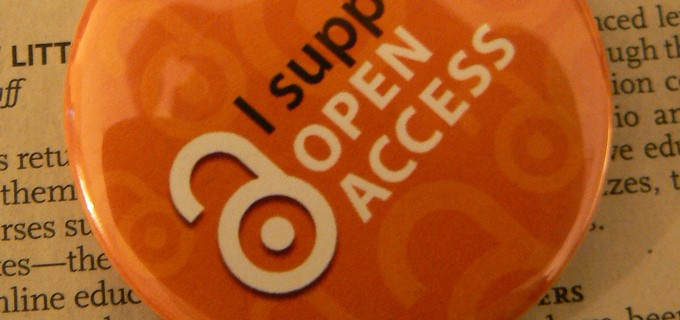
Better materials deposition means more open, reproducible science. We encourage authors to deposit materials into repositories, like , and use #RRID to make their materials easily citable. Authors and weigh in on @PLOSBlogs
More than 2,500 preprints, 1.3+ million views, and 300,000 downloads. We look back at our first year offering authors the chance to post to when submitting to PLOS. #PowerToThePreprint💥 plos.io/2V5ixR0
I am an Arctic researcher. Donald Trump is deleting my citations | Victoria Herrmann #ClimateChange #Datasharing theguardian.com/commentisfree/
Pleased to announce new CEO is Alison Mudditt []; formerly Director #OfficialPLOSblog blogs.plos.org/plos/2017/05/p


Do scientists lose credibility when they become political? No, says #StandUpforScience #Scicomm theatlantic.com/science/archiv
What opportunities can publishers increase or improve to help connect researchers and research communities?
-Contributor resources (authors, reviewers, etc.)
-Featured article collections
-Digital communities (social media groups, forums, etc.)
-Broad publishing opportunities
- Contributor resources22.1%
- Featured collections18%
- Digital communities36.9%
- Broad publishing oppts23%
244 votesFinal results
This spring, we asked scientists on Twitter to tell us what they see as the BIGGEST reason to make #NegativeResults, #NullResults, and #ReplicationStudies publicly available.
↙️ See what they had to say↘️
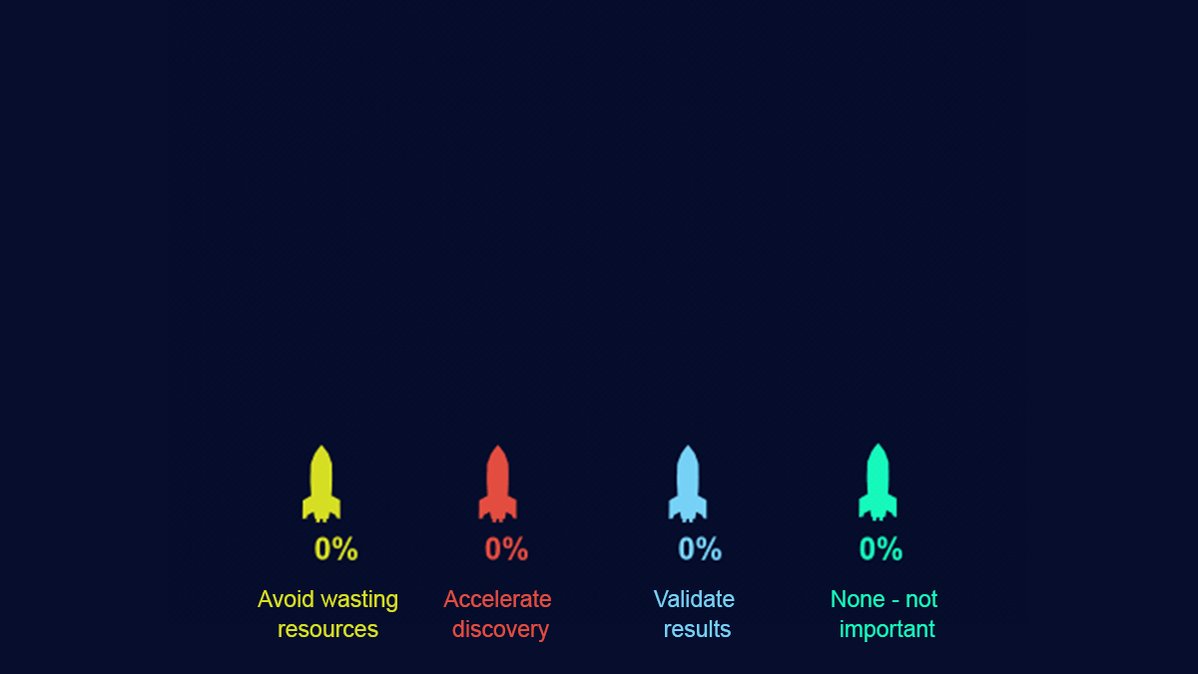
GIF

